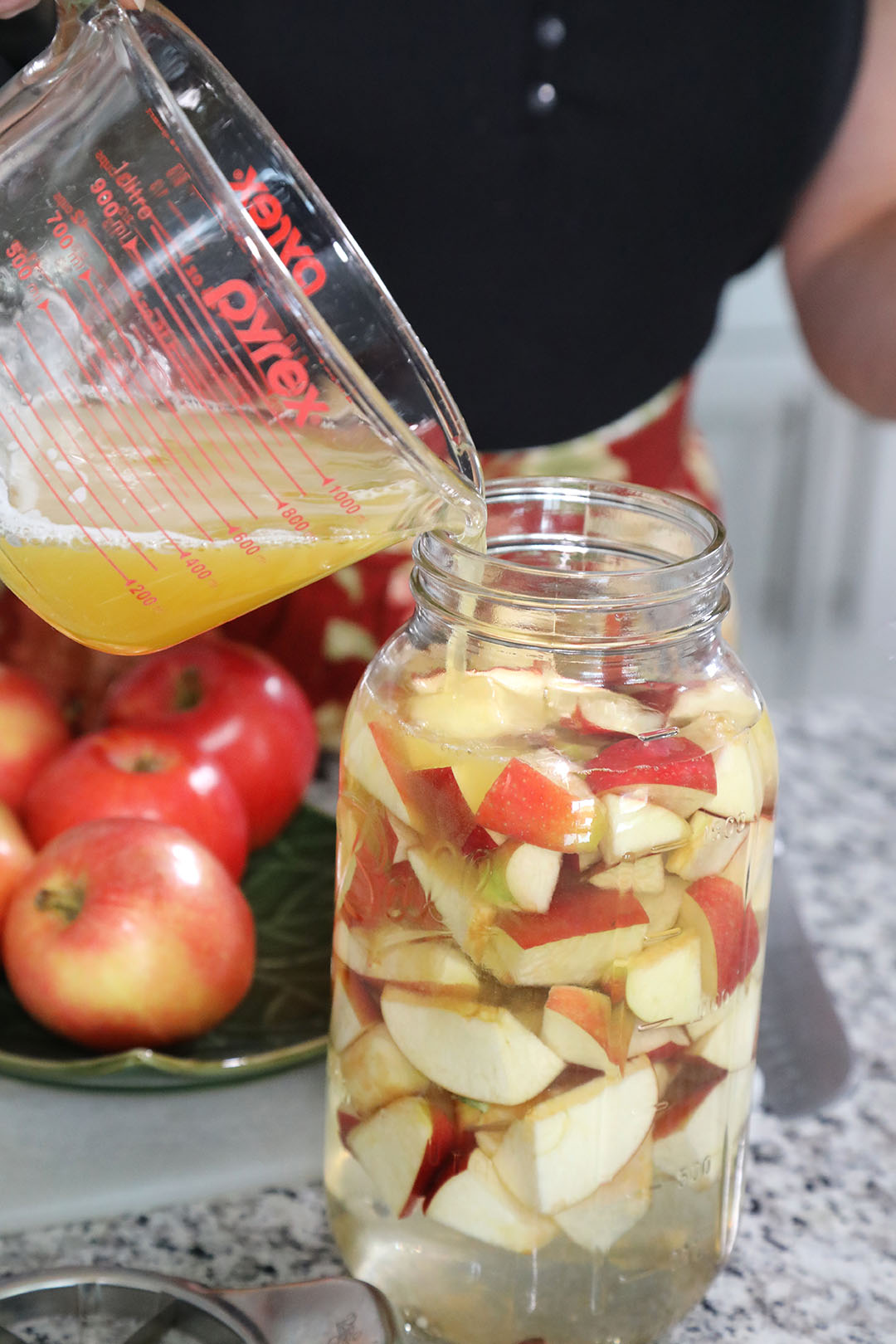Apple Cider Vinegar
(courtesy of Carly Neubert, holistic nutritionist in Reno. Makes 8 cups)
3 organic apples, chopped (or 5 to 6 cups apple scraps, including seeds, core, skins)
4 to 5 cups filtered water, divided
4 to 5 tablespoons sugar or local honey* (Neubert uses local honey to support the immune system and prevent allergies. Note that if you use honey, it will take double the amount of time to ferment)
Optional: You can add a splash (or 1 tablespoon) store-bought apple cider vinegar with the mother to inoculate your mixture with acetobacter and lactobacillus.
*1 tablespoon sugar/honey for every 1 cup water
If you want to skip exact measurements, fill your jar up halfway with apples. Then fill rest of jar with water/sugar mixture.
Supplies needed
64-ounce (8-cup) wide-mouth Mason jar
Coffee filter
Tea towel (optional)
Rubber band or twine
Apple corer (optional)
Knife
Measuring cup
Measuring spoon
Long metal spoon
Prepare your water-sugar (or water-honey) mixture by mixing 4 tablespoons honey/sugar with 1 cup filtered water. Chop 3 organic apples, or prepare 5 to 6 cups organic apple scraps. If apples are not organic, peel them and discard peel. Add apple pieces to jar; they should fill it to about half.
Pour 3 cups filtered water apples in jar. Next, pour water-honey mixture into jar. Use long metal spoon to stir mixture. You will need to stir every day for the next 2 weeks.
Cover jar loosely with coffee filter fixed to top with rubber band or twine. Don’t use cheesecloth as small bugs and fruit flies can get through gaps in it.
Store in dark corner of your kitchen or inside a cupboard, or cover with a tea towel for about 2 weeks (or 4 weeks if using honey). Stir mixture with a metal spoon or swish the jar every day. The optimal temperature range for the fermentation process is 54 to 70 degrees F.
After 2 to 4 weeks, strain out apple solids and discard. Put remaining liquid back in same jar and place on countertop. Let sit for additional 2 to 4 weeks or longer.
You can smell and taste your apple cider vinegar to determine when it is done fermenting. Store your finished vinegar in the refrigerator because it is not pasteurized.


